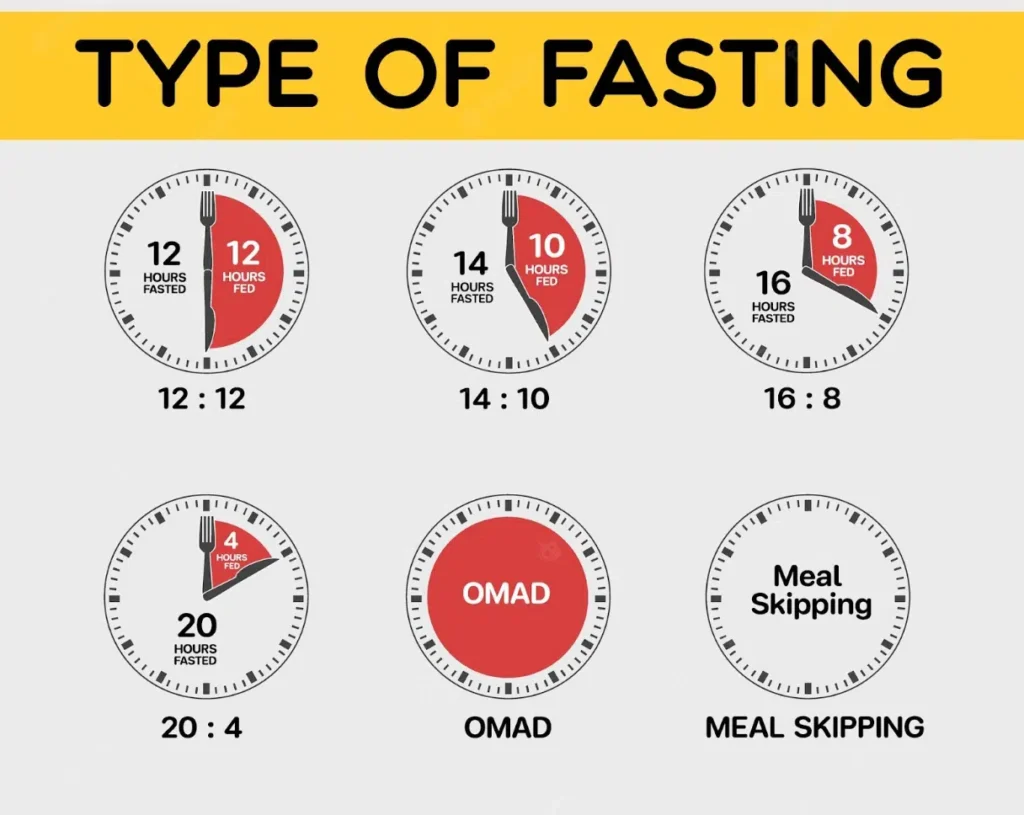Intermittent fasting (IF) is an eating pattern that cycles between periods of restricted food intake and normal eating. It has become a fat-loss strategy among fitness enthusiasts and the general public. However, it remains controversial because it challenges traditional ideas about meal frequency and timing, often considered essential for energy maintenance and muscle preservation. Supporters of IF argue that it offers multiple benefits, including better body composition, reduced fat stores, and even increased muscle mass.

How Does Intermittent Fasting Work?
There are various approaches to intermittent fasting. Some people practice alternate-day fasting, where calorie intake is restricted every other day, while others fast once a week or every third day. Among these methods, the 16:8 approach has become particularly popular. This method involves fasting for 16 hours each day and eating only during an eight-hour window.
The dieting regime has been around for a while but was made popular by the late Micheal Mosley, a British TV personality and health expert who popularised intermittent fasting. He died on June 5, 2024, at the age of 67, in Greece from heat exhaustion.
Does It Work?
Research indicates that intermittent fasting can offer a range of benefits. Animal studies have shown that fasting and calorie restriction can increase lifespan. While studies on humans are less conclusive, they still suggest positive outcomes, such as improved insulin sensitivity, which helps the body process nutrients more efficiently and reduces body fat and blood pressure.
What Are the Disadvantages of Intermittent Fasting?
Hunger is a common challenge for those trying intermittent fasting, mainly because many people are not accustomed to going long periods without eating. Research also suggests that frequent meals can help maintain a sense of fullness. For those who train regularly, fasting can increase muscle breakdown for energy, especially when working out on an empty stomach. Consuming pre-workout carbohydrates and essential amino acids can mitigate this issue by reducing muscle loss and promoting protein synthesis. Furthermore, many IF protocols skip breakfast, which, while beneficial for fat loss, may negatively impact memory, concentration, and food discipline throughout the day. There is some research to suggest that IF could lead to increase risk of death by heart attack.

What Are the Advantages?
Intermittent fasting can improve insulin sensitivity, helping the body process nutrients more effectively, and is associated with reduced body fat. It also has practical benefits, such as reducing the need to prepare multiple meals and potentially saving money by eating less overall.
Should You Try Intermittent Fasting?
Whether intermittent fasting is right for you depends on your personal goals, physiology, lifestyle, and preferences. While research shows benefits and drawbacks, it’s important to remember that no single diet works best for everyone. A balanced approach tailored to your needs is often the most sustainable solution.
FAST FACTS
Here are three of the most popular fasting methods. See which one best suits you.
16/8
Sometimes known as “Leangains”, a term popularised by author Martin Berkhan, this means restricting your eating to eight hours each day. Most people who do it will fast from 9pm to 1pm, train, and then eat two or three large meals in their eight-hour window.
20-4
Based on the feeding patterns of Roman and Spartan soldiers, this consists of 20 hours of fasting, then a four-hour feeding window. It’s arguably the simplest form of IF, but many find it tough to eat clean when they need to consume 2000 calories in one sitting.
5:2 Diet
Popularised in a TV show and best-selling book by UK doctor, the late Michael Mosely, over a week, the 5:2 diet requires you to eat normally for five days and on two non-consecutive days consume only 600 calories — say, in two small meals.
OMAD
One Meal A Day (OMAD) is what is says. Still eat clean, but as much as you want. Fill ya boots, because it’s not until tomorrow that you’ll eat again. Nothing but water or black tea or coffee.




